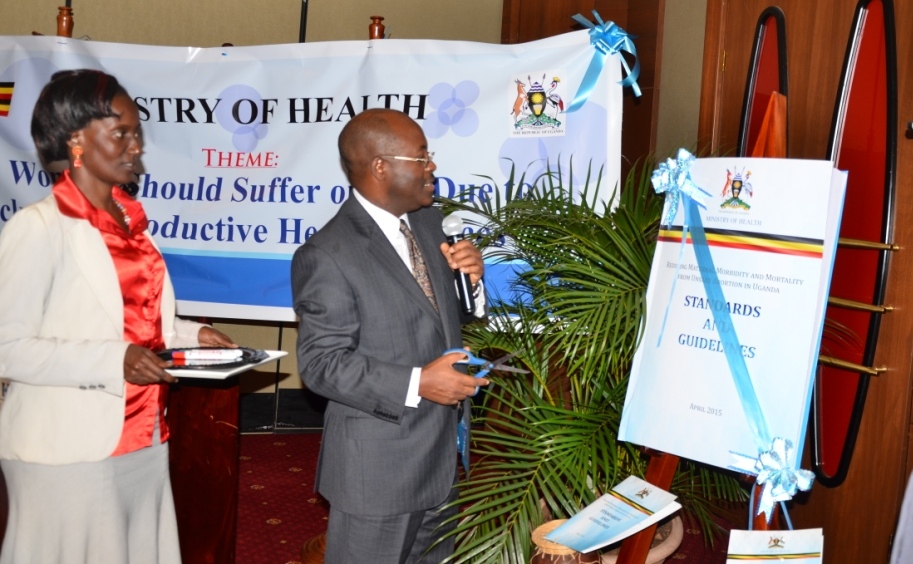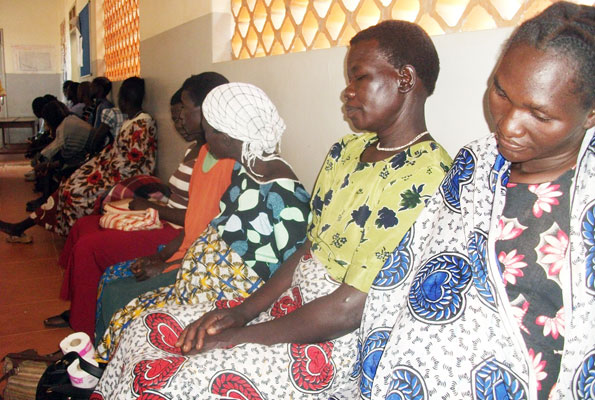BY CAROL NATUKUNDA
Woe unto a mother who goes to deliver in Mulago hospital at night or early morning. Chances are she could die.
A new report shows that the highest number of maternal deaths (14.2%) occurs between 9 am- 10am. Other “deadly” hours to be admitted are 7-8pm, 1-2am and 9-10pm.
In other regional referral hospitals combined, the highest number of deaths (13.2%) occurred between 7-10pm, followed by the 5-6am and 1-2pm.
The revelations are contained in a report titled “maternal mortality reviews in three referral hospitals in Uganda” 2009-2011. About 300 deaths of mothers were reviewed in Fort portal, Masaka and Mulago referral Hospitals.
According to the report, these time periods, in which mothers died relate to health worker fatigue and the periods of changeover of the medical staff.
Although 42% mothers died within 24 hours of admission, 20% died in the first six hours of admission. These were considered as the “walk in” dead, which suggested that they came to hospital when it was a little too late and nothing little could be done for them.
The report is the first of its kind and was carried out by the Association of Gynecologist and Obstetrics in Uganda, to explore why women continue to die in labour. An estimated 6,000 women die every year due to birth related problems.
Months of death
Overall, many mothers admitted at Mulago Hospital died in January and in July. These two months a number of changes on the calendar- the university examinations and holidays for the lecturers and some medical students, as well as recruitment of new interns.
“These personnel changes, impacted on the quality of services, provided at these hospitals,” the report states.
Furthermore, June and July was cited as the end of the financial year, and the hospitals were generally faced with challenges in procurement of essential supplies.
Causes of death
Presenting the findings at a conference on Thursday, Dr. Jolly Beyeza, a senior gynecologist and obstetrician said heavy bleeding ranked the highest cause of mortality at these hospitals, which often resulted from complications in labor, and delivery.
Other top complications, according to Beyeza were abortion, infections, and hypertentive disease in pregnancy. “Among mothers who died from abortion and ectopic related conditions had never had any antenatal care,” said Dr. Beyeza. Among the mothers whose mode of delivery was recorded, 11% died undelivered. Seven mothers were brought in hospitals when they were already dead, while the majority of mothers who came in with abortion or after delivery were critically ill.
Should abortion be legalized?
During the conference, participants debated on whether to legalise abortion or not.
Joy Asasira, a lawyer with the Center for Women’s Rights and Development said a lot of women are unnecessarily dying from crude methods of abortion.
“If a woman wants to have an abortion, it does not matter what the law says. She’ll have it anyway,” Asasira said.
“Many people don’t want to talk about it, but it happens. If you don’t talk about abortion, yet we want to achieve the Millennium Development Goal of improving maternal health, we are deceiving ourselves,” she added.
Asasira argued that the government was spending sh7.5billion every year to treat complications resulting from unsafe abortions. The World Health Organization estimates that in Uganda, about 300,000 abortions are carried out every year.
Statistics show that the use of contraceptives is still low in Uganda. About 26% of women in Uganda are using modern contraception methods, while about 16 women die every day due to maternal health problems, including abortion.
Asasira stressed that nearly all unsafe abortions are because of unwanted pregnancies.
She also acknowledged that while the law in Uganda does not criminalize abortion, terminating a pregnancy had to be done within constraints of the law.
Quoting Section 224 of the Penal Code Act, Asasira said: “The law doesn’t prohibit abortion absolutely. It has a provision that acknowledges that to save the life of a mother, in case of a severe illness, that is threatening the life of a mother; a safe abortion should be carried out. But most people are not aware of this fact.”
However, doctors were skeptic, arguing that if safe abortion is readily available, women might choose to use it as a form of family planning, rather than an emergency solution to an unwanted pregnancy.
“The best thing is preventing pregnancy itself. You cannot start solving a problem from the bottom of it. Even if you made removal of pregnancy available, women will decide to use abortion as a family planning method,” argued Prof Donald Amoko, a Ugandan gynecologist based in South Africa.
Dr, James Batwala, a senior consultant obstetrician and gynecology was also pessimistic. “I am sure as we talk now; abortion is going on either legally or illegally. When you think about it, a woman has a right [to abort]. But what about the child? Don’t they have a right to life? We need to draw a line. What is more important right now is that abortion is a killer,” Batwala said.
Reacting to the concerns, Asasira, argued: “As a lawyer, rights begin at birth. I am a woman, I love babies, but there are some issues beyond the woman.”
What mothers say
The median age at death was 25 years. According to the study, only 57% of women in Uganda deliver in a health facility. “We are wondering. Where do the rest go?” asked Beyeza.
Many mothers cite lack of transport from home to the health facilities in time, staff lacking expertise and shortage of doctors among others. But doctors also complained that patients came to hospital when it was way too late. They also lacked essential facilities in health centers to carry out emergencies.
Way forward
Participants noted that most the complications were treatable. Dr. Florence Mirembe, a gynecologist said involving men in the maternal health fight would make a difference. “The men need to walk with us,” she said.
The ministry of health permanent sectary Dr. Asuman Lukwago said the government was committed to give more resources to the sector. He also announced that a women’s hospital at Mulago Hospital would be ready within two years, and called for the need for training of more gynecologists and obstetricians to work at the center.
Frank Tumwebaze, the incoming minister of presidency said the government would look into recruitment of midwives. He also called on parliament to advocate aggressively for the increase of doctors and nurses salaries, saying it would make them motivated.
Source: http://allafrica.com/stories/201209220493.html


